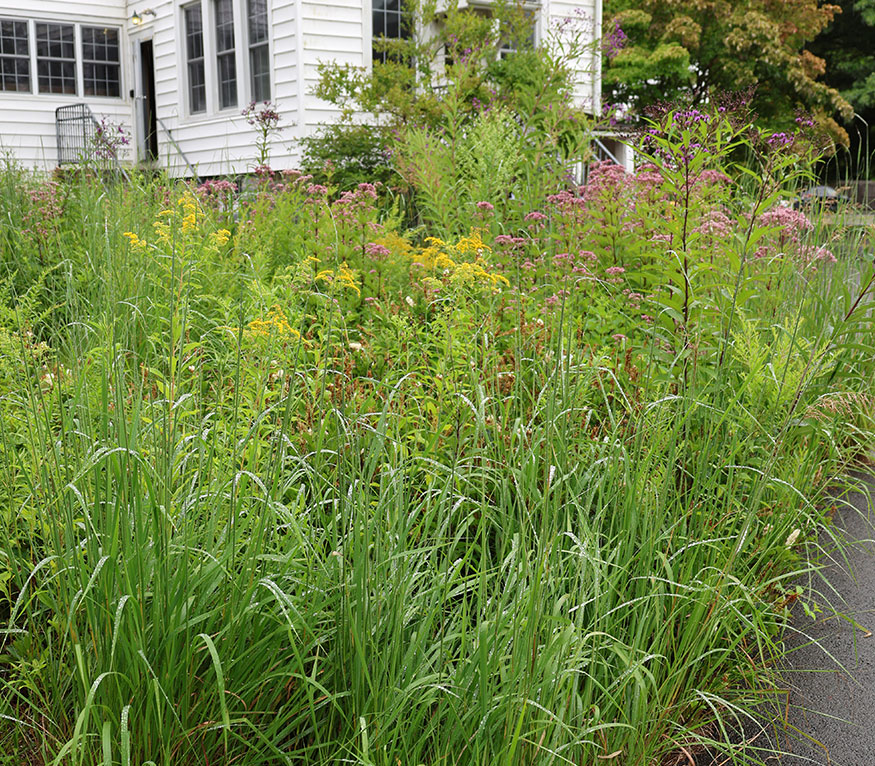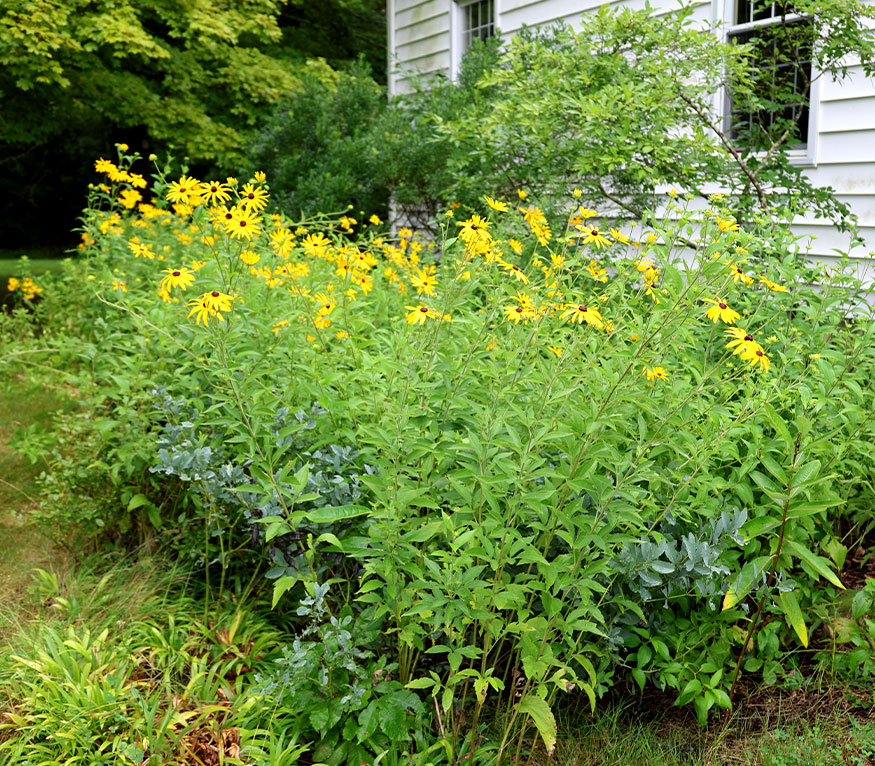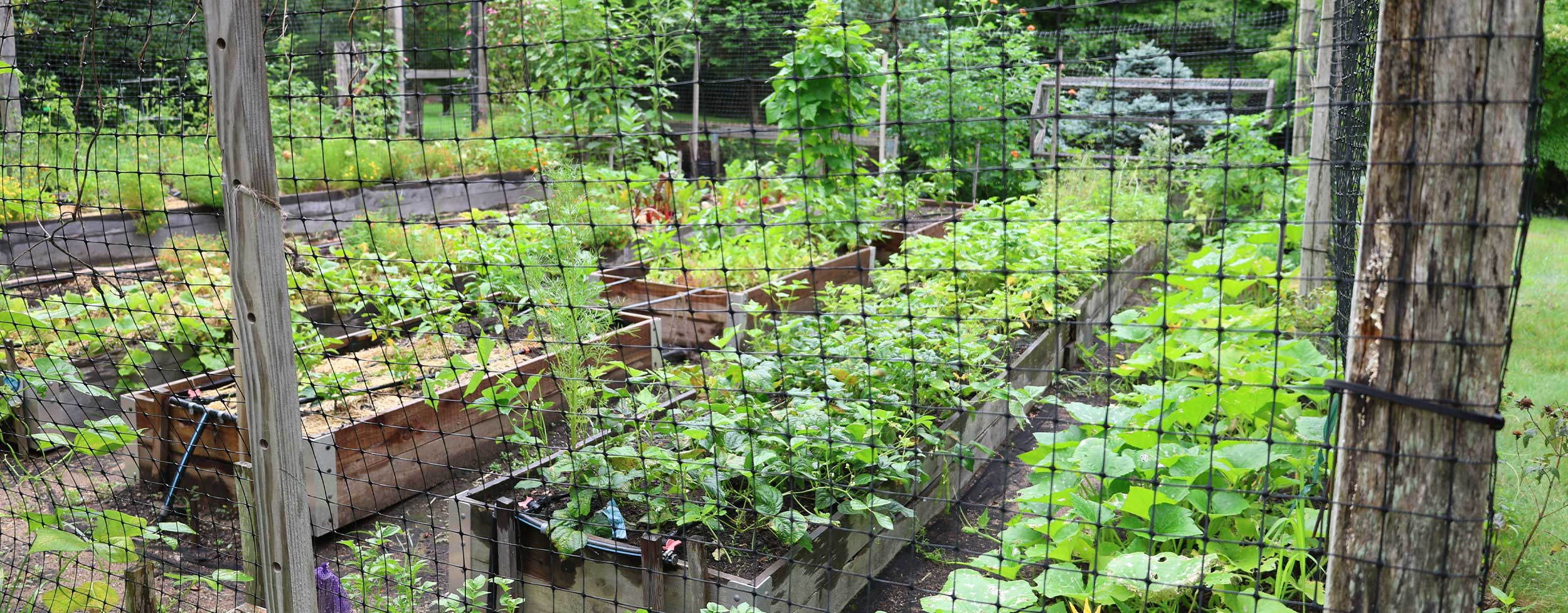
The UConn Extension demonstration gardens in Haddam, located at the Middlesex County Extension Center, offer a hands-on learning environment that promotes sustainable gardening practices. A key feature is the rain garden, designed to capture and filter stormwater runoff, reducing erosion and improving water quality. Planted with native shrubs, perennials, and grasses, the rain garden also supports pollinators and wildlife. Throughout the site, visitors can explore additional themed gardens showcasing climate-resilient plants suited to Connecticut’s conditions. Managed by Master Gardener volunteers, these spaces highlight the benefits of native plants, water conservation, and eco-friendly gardening techniques, inspiring community members to adopt sustainable practices in their own landscapes.
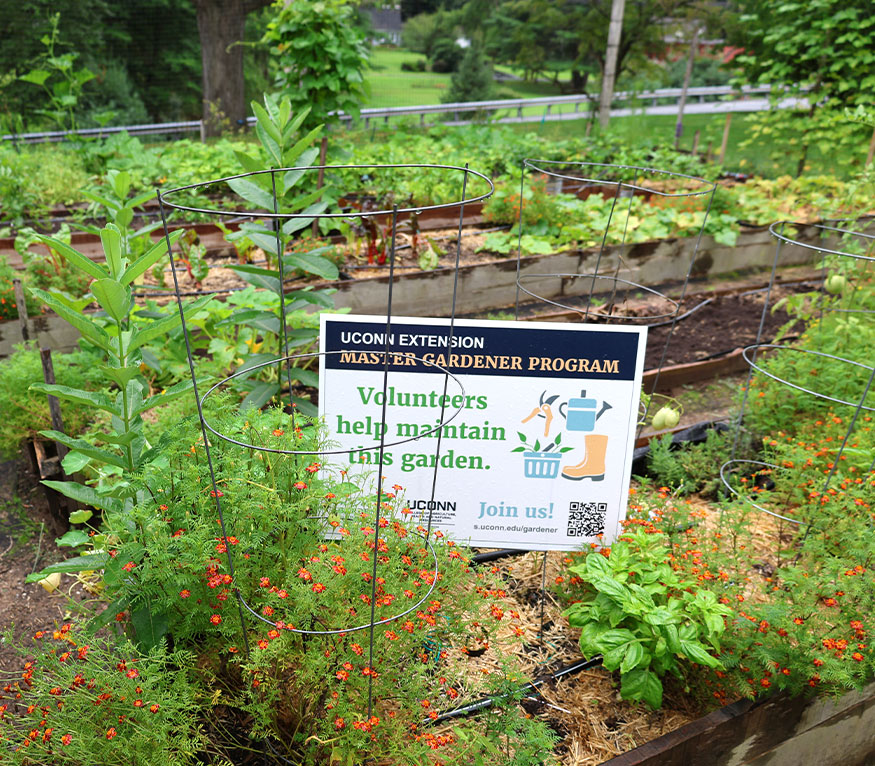
Community Garden
The Middlesex County Master Gardener Community Garden has been an example of sustainable and organic gardening since its inception in 2007. This model community garden is not just a space for growing crops but a hub for education, community engagement, and environmental stewardship. The garden not only serves as a practical resource for Master Gardeners but also as an inspirational example of what can be achieved through community cooperation and a commitment to sustainable living.
Key Highlights
- Garden Design: Initiated in March 2007 with sustainable features including an 8-foot deer fence and a custom-built gate, the garden uses locally sourced compost and emphasizes organic practices.
- Community Involvement: Supported by Master Gardeners and local volunteers, the garden thrives on collaborative efforts and projects like the three-bin compost system.
- Impactful Harvests: Produces a diverse array of vegetables donated to local food security organizations, significantly supporting families in need across Middlesex County.
- Challenges Overcome: Teamwork and innovation have tackled issues from pest infestations to plant support, enhancing the garden's productivity and resilience.
- Ongoing Initiatives: Future plans include enhancing composting techniques, seed propagation, and revitalizing herb and pollinator gardens to further enrich the community’s connection to sustainable practices.
Compost Bin
Approximately 25% of a typical household’s waste can be recycled right in our own backyards. This significantly reduces the amount of solid waste being incinerated or landfilled and promotes sustainable living and resource conservation at individual and community levels. The compost bin provides an opportunity to apply compositing techniques for our gardens. It also provides an educational opportunity to learn about backyard and small-scale composting and to assist participants in passing this knowledge on to others.
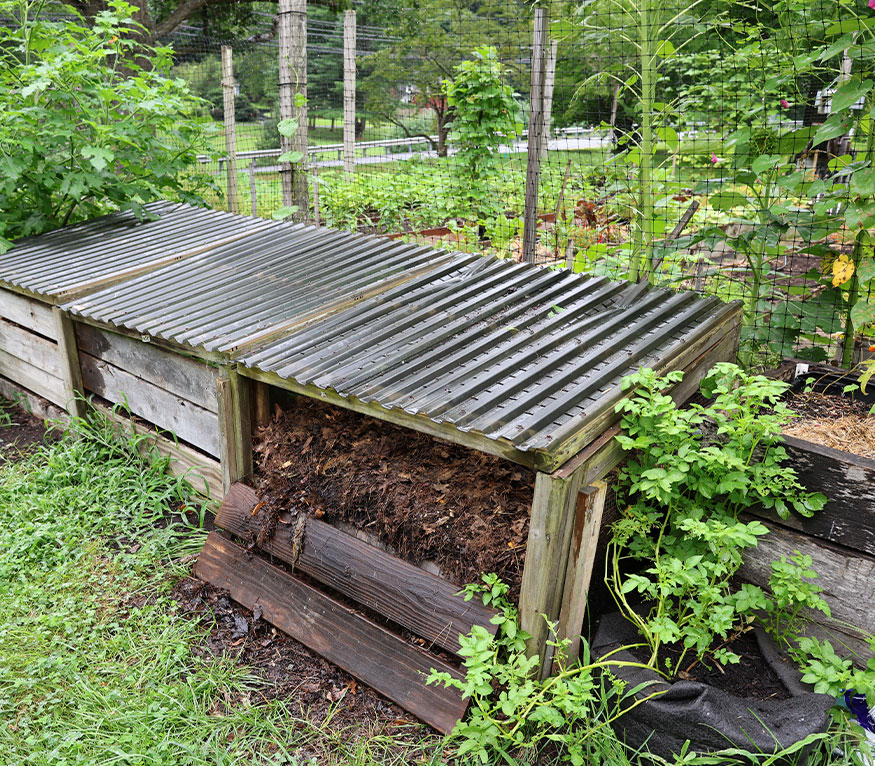
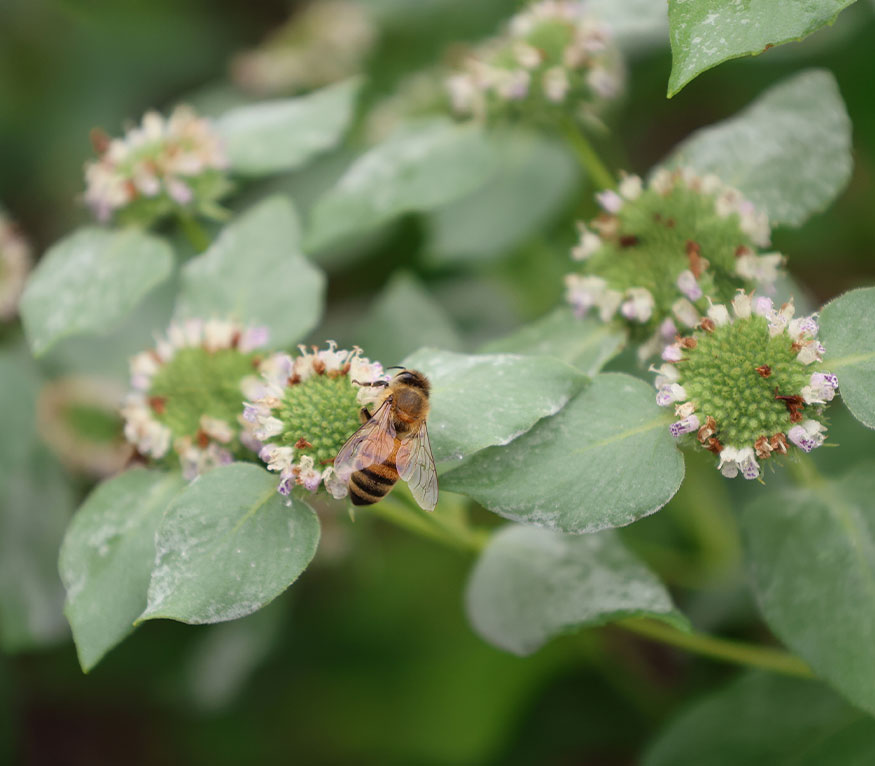
Pollinator Garden
The Pollinator Garden provides a vital food source and habitat for bees, butterflies, and other pollinators essential to local agriculture and native plant reproduction. Planted with a diverse selection of native wildflowers, shrubs, and perennials, this garden supports biodiversity and educates visitors about the crucial role pollinators play in food production and ecosystem health.
Rain Gardens
Designed to manage stormwater runoff and reduce erosion, the Rain Garden at the Haddam Extension Center demonstrates how strategically placed native plants and soil filtration techniques can naturally capture and absorb rainwater. This not only prevents pollutants from entering nearby waterways but also creates a vibrant habitat for beneficial insects, birds, and amphibians. It serves as a model for homeowners and communities looking to implement eco-friendly landscaping solutions.
Design Your Own Rain Garden
UConn CLEAR (Center for Land Use Education and Research) created a Rain Garden App. This app is a free tool which provides a step by step guide for how to properly install a rain garden featuring video tutorials, tips and tricks, and various tools to assist you along the way. There is also a companion website that has similar information. Learn more on the Rain Garden website.
